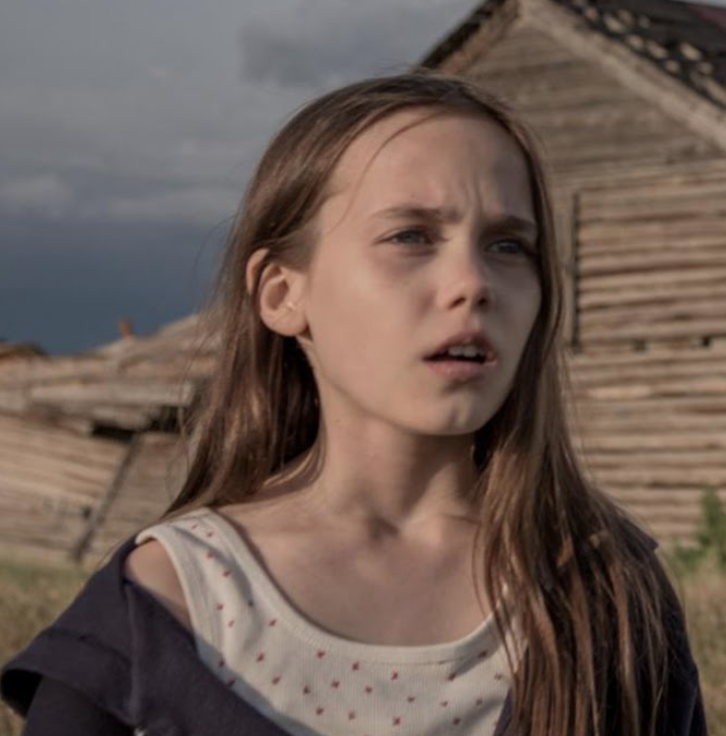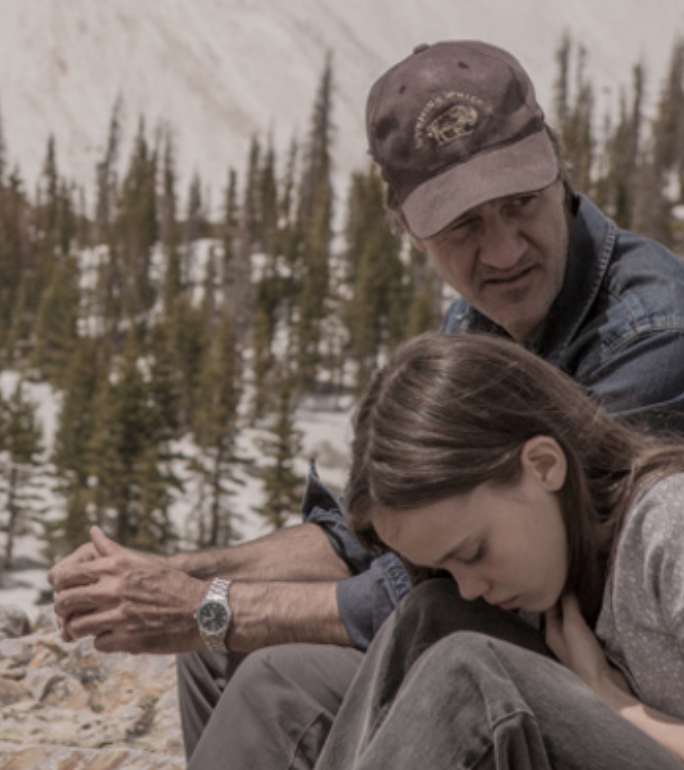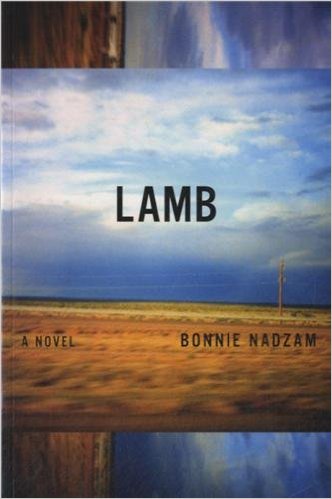 Oona Laurence is a remarkable actor. Barely a tween (and a small tween at that), she is technically a child actor. But because she’s hampered by none of the people-pleasing tics that doom most kid performers, it feels more accurate to simply describe her as an actor; if she chooses to, she’ll probably be just as deft at using her age as an instrument seventy years from now. Already she can look like an old woman in repose, which I attribute to the old-soul sadness she channels in films like last year’s “Southpaw” and “I Smile Back.” It is the grief of children who’ve already learned to cry without expecting comfort, and she takes it to new levels as the protagonist of “Lamb,” the adaptation of Bonnie Nadzam’s unsettling 2011 novel.
Oona Laurence is a remarkable actor. Barely a tween (and a small tween at that), she is technically a child actor. But because she’s hampered by none of the people-pleasing tics that doom most kid performers, it feels more accurate to simply describe her as an actor; if she chooses to, she’ll probably be just as deft at using her age as an instrument seventy years from now. Already she can look like an old woman in repose, which I attribute to the old-soul sadness she channels in films like last year’s “Southpaw” and “I Smile Back.” It is the grief of children who’ve already learned to cry without expecting comfort, and she takes it to new levels as the protagonist of “Lamb,” the adaptation of Bonnie Nadzam’s unsettling 2011 novel.
Laurence plays Tommie, the runty eleven-year-old daughter of parents (Lindsay Pulsipher and Scoot McNairy) so checked out that they don’t even bother to look up from their beers when she comes home in the middle of the night. She’s ripe, in other words, for some adult attention, which comes in the form of forty-seven-year-old David Lamb (Ross Partridge, tripling as writer/director), whom she approaches in a parking lot on a dare. Decked out in heels and a forlorn pink purse, she asks him for a cigarette while her friends titter; ostensibly to teach her a lesson, he hustles her into his SUV and then drops her off at home.
As it turns out, that bizarre exchange is just the tip of the iceberg, especially since no one in her life seems alarmed by his actions. Lamb is a man at dangerously loose ends: His alcoholic father has just died and his career and marriage are in tatters. Even his young girlfriend (the always-intriguing Jess Weixler) doesn’t seem to rouse him out of his existential despair. But when Tommie approaches him again in their depressing Chicago neighborhood, we can see the wheels in his head begin to turn, though it’s not clear to what end.
What makes “Lamb” such a curious film is that we never learn that exact end though the pair’s hazy dynamics are alarming from the start. A man who lies with such ease that he may not be aware of the extent of his own pathology, he is definitely a dissembler par excellence and possibly a pure sociopath. (Even Partridge’s physicality adds to the mystery: He resembles the unfortunate love child of good-galumph actor Dermot Mulroney and Jame “Buffalo Bill” Gumb, the serial killer of “The Silence of the Lambs.”)
The two begin spending time together, and Lamb brings Tommie to his hotel room, giving her cab fare and telling her she can go at any time. When the lonely girl sticks around instead, he asks her to join him on a cross-country trip to his Western ranch. She agrees, even though he warns her that it will look like kidnapping. It’s a testament to the degree to which we enter their folie à deux that it takes a narrative beat before we realize that it is kidnapping.
What’s unique about Nadzam’s neo-Lolita novel is this kind of meta-obfuscation – we know what Lamb tells himself he thinks but not what really makes him click. “Lamb” achieves a similar confusion, and it’s enhanced by Laurence’s uncanny balance of grit and vulnerability as well as Partridge’s laser eyes and blank tones. Nathan M. Miller’s slow-burning cinematography and Daniel Belardinelli’s melancholy score heighten the disparity between the pair’s appearance as man and daughter and the reality that these lost humans actually have no business being alone together: Here are two people who may not belong to each other but also don’t belong to anyone else.
 “Lamb” never pretends the man isn’t creepy though it does establish he’s not a pedophile (just to get that fact out of the way). He looks away when he should and only bestows asexual hugs. But he also doesn’t let the girl call her mom though he’s assured her she is free to leave. What’s worse: Tommie seems to know she’s a hostage but also that she doesn’t have a viable alternative back home. Some may feel “Lamb” lets its adult protagonist off the hook too easily. I find it a naturalistic horror tale, one whose very title can be read two ways. This is a male “Eleanor Rigby” who’s gone extra awry, not to mention an allegory of all the neglected children who, ironically, may fall through the cracks even more easily in this era of helicopter parenting.
“Lamb” never pretends the man isn’t creepy though it does establish he’s not a pedophile (just to get that fact out of the way). He looks away when he should and only bestows asexual hugs. But he also doesn’t let the girl call her mom though he’s assured her she is free to leave. What’s worse: Tommie seems to know she’s a hostage but also that she doesn’t have a viable alternative back home. Some may feel “Lamb” lets its adult protagonist off the hook too easily. I find it a naturalistic horror tale, one whose very title can be read two ways. This is a male “Eleanor Rigby” who’s gone extra awry, not to mention an allegory of all the neglected children who, ironically, may fall through the cracks even more easily in this era of helicopter parenting.
This was originally published in Word and Film.
